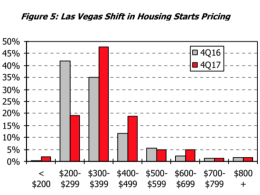The COVID-19 pandemic has brought significant changes to the way we live, work, and do business. The real estate industry has been no exception, with the pandemic forcing real estate agents and buyers to adapt to a new way of doing things.
The pandemic has shifted the focus towards remote work and online communication, with more people looking for homes that can accommodate a comfortable work from home setup. According to a survey conducted by the National Association of Realtors (NAR), 72% of buyers believe that a home office is essential in a post-COVID world. As a result, homes with dedicated office space are now in high demand, and sellers who can offer this feature are at a significant advantage.
Another trend that has emerged during the pandemic is the rise of virtual tours and online listings. With many buyers unable or unwilling to attend open houses in person, virtual tours have become a popular alternative. Real estate agents have also begun to offer virtual consultations and walkthroughs, allowing buyers to view properties from the comfort and safety of their own homes.
However, the pandemic has also created challenges for the real estate industry. With many people experiencing financial difficulties due to the economic impact of COVID-19, buying a home has become more difficult for some. Additionally, the pandemic has disrupted supply chains and caused construction delays, resulting in a shortage of housing inventory in some areas.
Despite these challenges, the real estate market has remained strong in many areas, with record-low mortgage rates and a shortage of housing inventory driving up prices in some markets. Real estate agents have had to adapt to the changing market conditions, using innovative strategies to connect buyers and sellers and close deals.
As we continue to navigate the post-COVID world, the real estate industry will continue to evolve. The pandemic has highlighted the importance of adapting to changing circumstances and embracing new technologies, and those who can do so will be best positioned for success.
Opinion Piece: “Why the Real Estate Market is Booming in a Post-COVID World”
Despite the economic challenges posed by the COVID-19 pandemic, the real estate market has remained strong in many areas, with record-low mortgage rates and a shortage of housing inventory driving up prices in some markets.
One reason for this is the increased demand for homes that can accommodate a comfortable work from home setup. With many people now working remotely, having a dedicated office space has become a top priority for many homebuyers. Homes with this feature are in high demand, and sellers who can offer it are at a significant advantage.
Another factor driving the real estate market is the low interest rates on mortgages. With the Federal Reserve lowering interest rates to combat the economic impact of COVID-19, mortgages have become more affordable, making it easier for buyers to enter the market.
However, the real estate market is not without its challenges. The pandemic has disrupted supply chains and caused construction delays, resulting in a shortage of housing inventory in some areas. Additionally, the economic impact of the pandemic has made it more difficult for some buyers to enter the market, with many experiencing financial difficulties.
Despite these challenges, the real estate market is showing signs of resilience. Real estate agents have had to adapt to the changing market conditions, using innovative strategies to connect buyers and sellers and close deals. Virtual tours and online listings have become increasingly popular, allowing buyers to view properties from the comfort and safety of their own homes.
As we continue to navigate the post-COVID world, the real estate market will continue to evolve. Those who can adapt to changing circumstances and embrace new technologies will be best positioned for success.
Research Techniques











